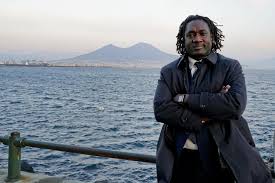Not all is lost for Portugal’s socialists

Lisbon: Hardly ever has Portugal experienced such an exciting election night. While polls showed the conservative Democratic Alliance (AD) clearly ahead of the Socialist Party (PS) after the voting had ended, the socialists made up a lot of ground over the course of the night — finishing with 28.6 per cent, just 0.87 per cent behind the conservatives, who stumbled across the finish line with 29.5 per cent.
Despite the narrow result, PS Secretary General and lead candidate, Pedro Nuno Santos, announced in a statesmanlike manner that he did not want to play any ‘tactical games’: ‘we will go into opposition, renew the party and win back the dissatisfied voters. That is our task’. Thus, he is ruling out a grand coalition, which was last seen in Portugal between 1983 and 1985, based on the large differences in content between the parties. But has the announcement that he intends to go into opposition perhaps come too soon? Or is it a tactical game to, sooner or later, provoke new elections, as Santos knows how difficult it could be for the conservatives to form a government?
It is not until a week from now, on 20 March, that all votes will be counted. The votes of the Portuguese living abroad, who make up a total of four members of parliament, will then also be announced. If the right-wing populist Chega gains strength among them and steals votes from the conservatives, the PS could still achieve a majority and, consequently, a stalemate in parliament with AD and PS both winning 80 seats. Not very likely, but not entirely out of the question either.

Whether with or without the votes of the Portuguese abroad: it’s a fact that forming a government, which requires the votes of at least 116 of the 230 MPs, is already proving almost impossible, as neither the left-wing nor the conservative camp can still achieve the necessary majority. Portugal seems ungovernable right now.
Political observers are already predicting that Montenegro, even if he were somehow elected prime minister by the beginning of May at the latest, would not be able to celebrate Christmas in this office.
It’s also a fact that the rise of Chega’s right-wing populists already shook up the political landscape. Their parliamentary group will quadruple to 48 MPs. The conservatives, on the other hand, currently only have 79 seats — a far cry from a majority. Chega leader André Ventura, therefore, already sees himself as a kingmaker, but only on one condition: participation in government. However, the potential king and leading candidate of the conservatives, Luís Montenegro, doesn’t seek Chega’s votes — something he repeatedly emphasised on election night. So, the barrier to the right is still standing. A coalition of AD and Chega? Out of the question!
But how stable can a conservative minority government be, especially when the PS has already announced that it will not support the state budget in autumn? Political observers are already predicting that Montenegro, even if he were somehow elected prime minister by the beginning of May at the latest, would not be able to celebrate Christmas in this office. It is just too likely that he will fail to get the state budget through parliament at the end of November with a conservative minority government.
Although it’s still relatively early, there are already two trends worth mentioning. Firstly, no party has gained as many votes in absolute terms as Chega. It therefore stands to reason that the increased voter turnout has also benefited them. This year, turnout has risen from 51 per cent in 2022 to 66 per cent — the highest figure since 1995.
Secondly, in the agricultural, less industrialised regions of Alentejo and the Algarve, Chega is particularly strong when voter turnout is particularly low. It seems that the two dominant parties there – the Communists and the PS – have gained little traction and lost their votes to populists. In their former strongholds, such as Beja or Évora, the Communists didn’t win a single seat, while Chega came a strong third. In the Algarve, in Faro, the right-wing populists even moved into first place, ahead of the PS.
In places where people feel that ‘those at the top’ do not have the situation under control, they believe the right-wing populist slogans that rail against the ‘corrupt elites’.
So, do the Portuguese lean to the far right after all? No, according to a survey conducted by the Portuguese office of the Friedrich-Ebert-Stiftung in October 2023. The analysis of interviews with around 1 000 eligible voters revealed that the majority of Portuguese share progressive positions: 73 per cent believe that people born in Portugal should have Portuguese citizenship, regardless of their parental origin. Only a quarter think that the influx of migrants means a cultural impoverishment of the country. Eighty-two per cent want their government to do something about climate change, even if other countries are not doing the same. At the same time, 72 per cent of people also believe that politicians are dishonest, working only to get re-elected. However, this contrasts with a large majority of 80 per cent who value democracy as a form of government that brings different opinions together.
There is thus much that suggest Chega is an elite populist party. In places where people feel that ‘those at the top’ do not have the situation under control – for example difficult medical care in rural Alentejo, water shortages in the Algarve, housing shortages in the tourist hotspots – they believe the right-wing populist slogans that rail against the ‘corrupt elites’. In terms of content, the PS seems to be closer to the people due to its successful policies of the last eight years. Closer than its politicians maybe?
The former Prime Minister and Secretary General of the PS António Costa leaves behind an economically strong country: during his time in office between 2015 and 2023, Portugal’s economy grew by an average of two per cent and was in second place in Europe in the fourth quarter of 2023 at 2.3 per cent. New structural debt is already back to pre-pandemic levels, unemployment is consistently below seven per cent and the monthly minimum wage has risen from €505 in 2015 to €820 in January 2024. Five million Portuguese people are currently in employment subject to social security contributions, the highest number since the Carnation Revolution 50 years ago.
Europe is also giving a nod of approval to the energy transition: in February 2024, 88 per cent of the electricity produced in Portugal came from renewable energy sources — at peak times even up to 100 per cent. This optimistic development of the Portuguese economy is also reflected in population growth: for the first time since the Carnation Revolution, Portugal had a positive net migration in 2022.
However, the public prosecutor’s investigations into members of the cabinet and people close to the PS, which forced Costa to resign last autumn and which led to the new elections last Sunday, are weakening confidence in state institutions and political parties. The conservatives are also contributing to this: the raids on the regional governments suspected of corruption in Madeira in January came as a surprise. Whether the public prosecutor’s office will press charges against the head of government of the regional governments is still pending. What is certain, however, is that the events were grist to the mill of the right-wing populist parties. It is therefore important to quickly restore the trust lost.
Under these circumstances, the PS must take the challenge of being a strong opposition party seriously. Despite the polls, which predicted a victory for the conservative alliance following Costa’s resignation, the new PS Secretary General Santos is now enjoying a slight tailwind. And with a little patience, perhaps the wind of government will soon be blowing around his nose after all.





